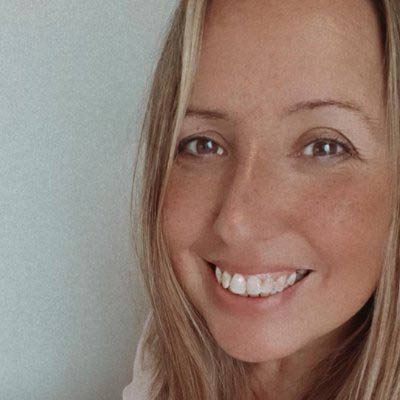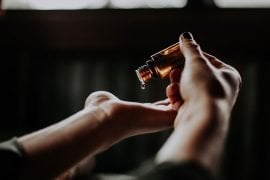CBD is available in so many different forms, all of which have different ingredients and dosages. Plus, CBD products are still relatively new and there are no “official” dosing guidelines—yet. So what’s the right CBD dosage for you?
And before we kick things off, an important note from our medical reviewer, Anthony Fanucci, Pharm.D.: Always speak to your doctor before determining if CBD is safe for you, or which dosage is right for you.
How much CBD you should take depends on so many different variables. So it’s impossible to just throw a number out and call it a day.
All that said, research into the benefits of CBD continues. And what’s available does give some idea as the dosage range that appears to be effective for different benefits.
CBD – The basics
CBD – short for cannabidiol – is the one of the two main cannabinoids in marijuana, along with tetrahydrocannabinol—or THC. Unlike THC, CBD isn’t associated with the psychoactive effects that produce that “high”.
CBD is believed to have numerous physical and mental health benefits, many of which are being researched. While not all of these have been conclusively proven, the research is promising, to say the least!
Currently, there is an approved CBD-based subscription medication for epilepsy, called Epidiolex.
There’s also some evidence that CBD is helpful in treating everything from anxiety, depression, insomnia, pain and nausea.
The World Health Organization (WHO) also acknowledges CBD’s potential therapeutic effects on numerous medical conditions. These include certain types of cancer, rheumatoid arthritis and diabetes. As well as cardiovascular disease, multiple sclerosis, inflammatory bowel disease (IBD) and Crohn’s disease, Alzheimer’s disease, Parkinson’s disease and Huntington’s disease.
Factors that impact how much CBD you should take
There are several factors to consider when trying determining how much CBD you should take…and as always, consult your doctor to help you figure this out.
Let’s break them down:
The symptoms you’re treating. The symptoms you’re hoping to alleviate are important to consider when figuring out dosing. The research available suggests that anywhere from 10 mg to 1280 mg may have benefits as a daily or single dose, depending on the issue being treated. The end of that range where you should be depends on what you’re treating.
Method of administration. Dosing varies between the different methods of administration. There are CBD oils, capsules, edibles, and sprays. Each formulation is available in different concentrations.
Product Review: CBDistillery Broad Spectrum Relax Gummies
The ingredients. Not all CBD products are the same when it comes to ingredients and the ingredients most definitely impact the effects. For instance, some CBD products may contain THC. Your doctor can help you decide on a starting dose or dose titration.
Individual factors. Everyone is different, so you need to consider individual factors. These include your weight, age, overall health (do you exercise), and even your biological sex when figuring out your dose. These factors may affect the speed at which CBD is metabolized by the body and how it will affect you. CBD may also interact with other medications so, wait for it, check with your doctor before starting any CBD regimen.
Your sensitivity. There’s a reason why experts and seasoned CBD users often say to go ‘low and slow’. Starting with a low dose is the best way to determine your sensitivity to CBD. It’s also always your safest best when trying any new substance. And while you’re at it, check with your doctor to see if this is the right form of CBD for you.
CBD dosage guide: The specifics
Without established clinical dosing guidelines to follow, starting low and going slow really is the best way to use a new CBD product. You can gradually work your way up until you find a dose that’s well tolerated and provides the therapeutic effects.
To give you a general idea of a dosage range, the following are CBD dosages that have been used in research with promising results for certain conditions/symptoms:
Anxiety – 300 to 600 mg
Poor sleep – 25 mg to 175 mg per day
Chronic pain (moderate to severe) – 30 to 60 mg per day
Chemotherapy-related pain – 50 mg to 600 mg per day
Nausea – 5 mg to 20 mg
Bowel disease – 5 mg twice per day
Keep in mind that this is a general range. You’ll still want to consider all the factors we covered earlier when choosing your dosage. You can use CBD for years and still keep learning what’s best for you.
Your CBD packaging will tell you what constitutes a single dose.
When to talk to your healthcare provider
Talk to your healthcare provider if you’re going to use CBD to help manage an existing medical condition. Especially if you are taking other medications or are undergoing medical treatments, such as chemotherapy.
Your healthcare provider should be able to advise you of possible drug interactions. They should also offer guidance on the safest CBD product and dosage for you.
And speaking of CBD dosage safety…
Research shows that CBD is generally safe and well tolerated. Evidence from human and animal studies and according to the World Health Organization, hasn’t shown CBD to be associated with abuse potential.
In plain English: CBD on its own isn’t addictive and won’t get you high. And even a medium to high dose is unlikely to cause serious adverse effects in most people.
That said, finding the optimal dose for your needs will likely require a little patience and tweaking, as well as a discussion with your doctor.
Also Read: How long does it take CBD to work?
If you still aren’t getting any benefit after giving a CBD product ample time to work even after increasing the dose, you might find that a different concentration or an entirely different method of administration works better for you.

Adrienne Santos-Longhurst is a freelance health and lifestyle writer that has written for Healthline, Medical News Today and Verily Magazine just to name a few.





